In many farm households, women do the lion’s share of the paperwork, but are not necessarily named on any business documents such as the herd number or the chequebook, the Women & Agriculture heard on Thursday.
“Women not on the herd number is a big dilemma. Our name is not on the milk cheque and not on the livestock sales, so we have no assets. We can’t talk to the Department when we ring up,” a member of the audience at the Women and Agriculture conference on Thursday stated.
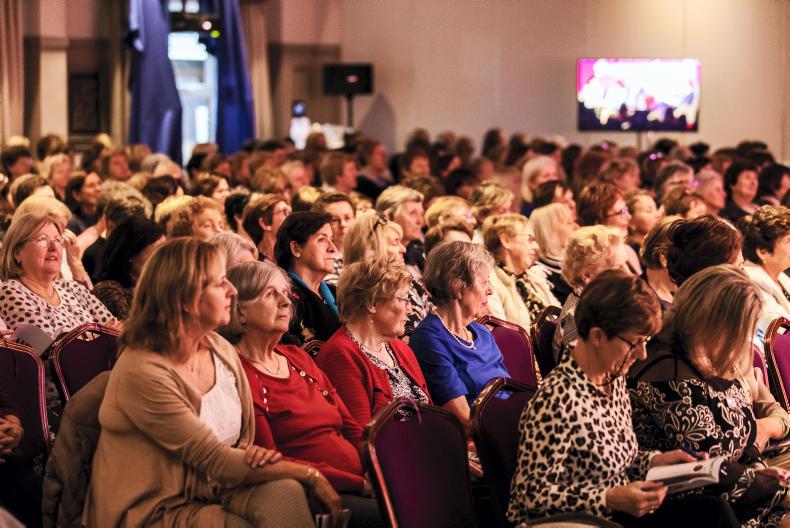
Women and agriculture conference in Sligo on Thursday 24 October 2019 \ Philip Doyle
Addressing the problem is multi-faceted, be it through succession planning or building the confidence of women in farm households.
“It’s one of those problems that affects more than just farmers. If someone dies and all the bills are in one name, then you can’t talk to the ESB, etc,” Corina Roe from the Department of Agriculture said.
“Part of this is to recognise the role of women in farming. Part of the work that needs to happen is building people’s confidence. In other countries, there are more joint partnerships. Ireland has a very traditional attitude to succession.”
Succession worries
Some 57% of women surveyed at the conference said that they are worried about succession causing conflict in their family.
Almost two-thirds said that they had already discussed farm succession within their family. When asked what the ideal age is for a young farmer to be given the farm, 40% said over 25, 37% said over 30, 19% said age not a factor and 4% said over 21.

CAP panel Katerina Vrublova from Copa Cogeca, Corina Roe from the Department of Agriculture and the IFA director of European Affairs Liam MacHale \ Philip Doyle
No European member state has used the Rural Development Programme or LEADER to create female specific initiatives. But there are examples from across Europe where women have got together to address some issues.
“In Sweden, they use the mix of funding from national and private measures where they developed vocational training specifically targeted at women. They created a platform for those women to stay connected to each other afterwards,” said Katerina Vrublova from Copa Cogeca. “The rural women in Flanders, Belgium, created an online platform on the issues they may be having to help them get together and deal with their own problems.
"In Wallonia, they created a farmer replacement programme, for farmers that need to go on maternity or sick leave. It provides someone to stand in for them on the farm.”
Read more
National Women's Enterprise Day set to be bigger than ever
In many farm households, women do the lion’s share of the paperwork, but are not necessarily named on any business documents such as the herd number or the chequebook, the Women & Agriculture heard on Thursday.
“Women not on the herd number is a big dilemma. Our name is not on the milk cheque and not on the livestock sales, so we have no assets. We can’t talk to the Department when we ring up,” a member of the audience at the Women and Agriculture conference on Thursday stated.

Women and agriculture conference in Sligo on Thursday 24 October 2019 \ Philip Doyle
Addressing the problem is multi-faceted, be it through succession planning or building the confidence of women in farm households.
“It’s one of those problems that affects more than just farmers. If someone dies and all the bills are in one name, then you can’t talk to the ESB, etc,” Corina Roe from the Department of Agriculture said.
“Part of this is to recognise the role of women in farming. Part of the work that needs to happen is building people’s confidence. In other countries, there are more joint partnerships. Ireland has a very traditional attitude to succession.”
Succession worries
Some 57% of women surveyed at the conference said that they are worried about succession causing conflict in their family.
Almost two-thirds said that they had already discussed farm succession within their family. When asked what the ideal age is for a young farmer to be given the farm, 40% said over 25, 37% said over 30, 19% said age not a factor and 4% said over 21.

CAP panel Katerina Vrublova from Copa Cogeca, Corina Roe from the Department of Agriculture and the IFA director of European Affairs Liam MacHale \ Philip Doyle
No European member state has used the Rural Development Programme or LEADER to create female specific initiatives. But there are examples from across Europe where women have got together to address some issues.
“In Sweden, they use the mix of funding from national and private measures where they developed vocational training specifically targeted at women. They created a platform for those women to stay connected to each other afterwards,” said Katerina Vrublova from Copa Cogeca. “The rural women in Flanders, Belgium, created an online platform on the issues they may be having to help them get together and deal with their own problems.
"In Wallonia, they created a farmer replacement programme, for farmers that need to go on maternity or sick leave. It provides someone to stand in for them on the farm.”
Read more
National Women's Enterprise Day set to be bigger than ever








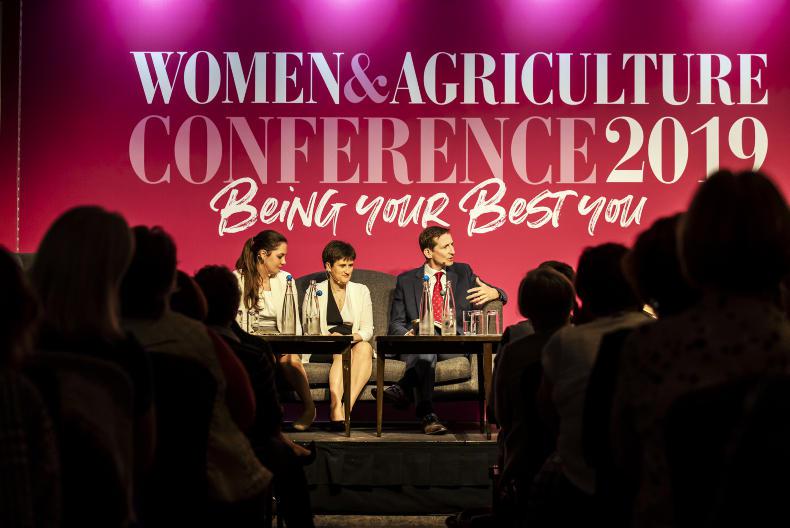

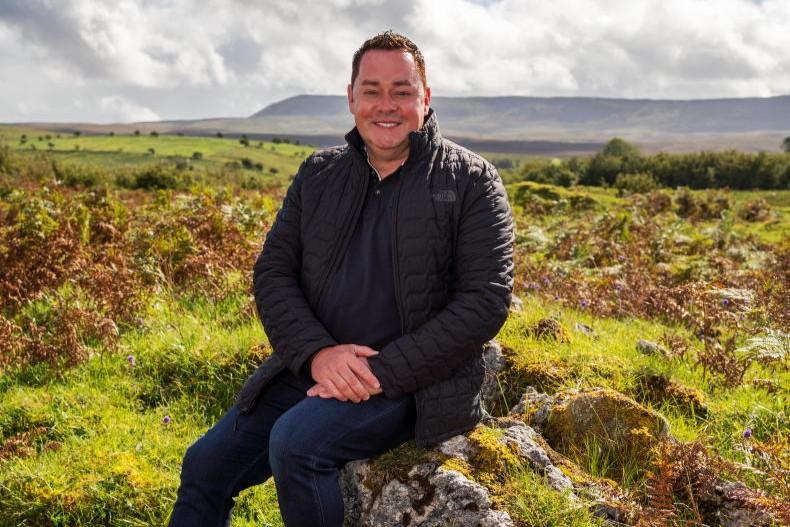
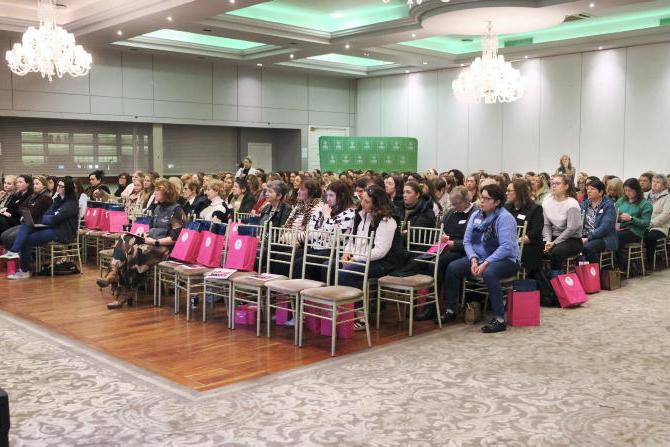
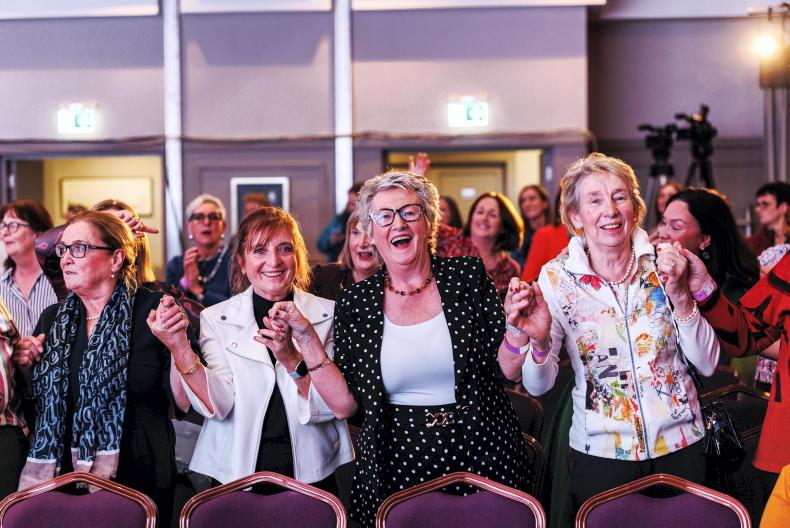
SHARING OPTIONS